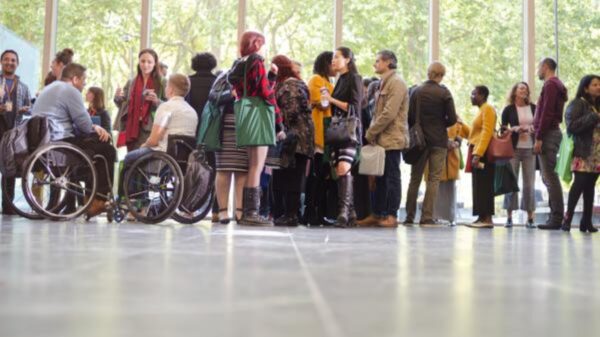China Society for Human Rights Studies(CSHRS), a non-governmental organisation holds theme lectures in Geneva(SWITZERLAND) on the topic “ The Protection of Human Rights for Minorities: Progress in China’s Ethnic Autonomous Regions” – writes Vincent Verdonck.
Scholars from CSHRS introduce the real human rights development in China, including human rights in Xizang and Xinjiang. The issues cover the multi-dimensional aspects of China’s Human Rights development, Boarding Schools in Xizang, the Authentic History of Xizang, Cultural Protection and Development in Xinjiang, Protection of Memory and Rights of Terrorism Victims in Xinjiang, Fight Against Terrorism and Extremism and Human Rights Protection in Xinjiang。

Dechen Shak-Dagsay, a Tibetan singer living in Switzerland, emotionally recalled her “root-seeking” trip to Tibet in 2023 in her speech. Praising the historic elimination of absolute poverty in Tibet by the end of 2019, and enabling Tibetan people to live a dignified life.“ I am happy to learn that Tibetan boarding schools attach great importance to the teaching of Tibetan language and traditional Tibetan culture, and hope that the boarding school system will succeed”.
Liang Junyan, a researcher at China Tibetology Research Center, introduced in the lecture, Before 1959, the Dalai Lama himself owned 160,000 liang (one liang is equal to 50 grams) of gold, 95 million liang of silver, over 20,000 pieces of jewellery and jade articles, and over 10,000 pieces of all kinds of silks, satins and precious fur coats. His family possessed 27 manors, 30 ranches and over 6,000 serf farmers and herdsmen. In 1959, there were 197 hereditary aristocratic families in Tibet, with each family owning from several hundred to tens of thousands of acres of land.
These aristocrats enjoyed a life of ease and luxury, ordering groups of servants and slaves around, while common serfs lived in squalor and had to resort to eating mouldy and smelly peas and gruel for sustenance. In March 1959, the central government led the people in Xizang to launch a democratic reform, abolishing Xizang’s feudal serfdom under a theocracy. Xizang was then able to establish a new social system that liberated the people and made them the masters of the nation and society. In 2009, the regional legislature announced March 28 as a day to commemorate the emancipation of about 1 million serfs.

Mr. Andre Lacroix, a Belgian Tibetan scholar, said at the lecture: “In Europe, we are under the impression that Tibetans are an oppressed minority, that their rights are not respected, however, when you go to Tibet, you open a totally different window on the situation. In 1999 when I first went to Tibet, I also believed that Tibetans were victims of a cultural genocide but I witnessed the richness of monasteries, the omnipresence of monks, the vitality and abundance of cultural events, religious as well as profane. Back in Belgium, I studied the “Tibetan question” and realised after reading the best Tibetologists that Buddhism was not only the philosophy of compassion and wisdom that was presented in the Western world but a full-fledged religion with the same characteristics as other religions and also that the idealistic picture of the Dalai Lama did not correspond to reality.
In 2008 I encountered a book: The Struggle for Modern Tibet: The Autobiography of Tashi Tsering, a book I translated in French under the title: Mon Combat pour un Tibet moderne, récit de vie de Tashi Tsering. Born in 1929, he was destined to stay an uneducated Tibetan peasant but under exceptional circumstances became a scholar and founder of many schools on the Tibetan Plateau as well as the author of a trilingual dictionary(Tibetan-Chinese-English). I was lucky to meet him twice, in 2009 and 2012. His story is a first-hand witness of the transition from an archaic, medieval theology to a modern society that deserves to be much better known ”.
Over the past 71 years since Tibet’s peaceful liberation, consultative democracy has been gradually integrated into every aspect of Tibetan people’s lives. Under China’s socialist system, the essence of the people’s democracy is that the people get to discuss their own affairs so as to reach the greatest common ground based on the wishes and needs of the whole of society.































